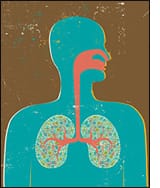In recent announcements, the World Health Organization (WHO) has identified a new variant of the COVID-19 virus that may be driving an uptick in cases across various parts of the globe. This new development underscores the ongoing evolution of the virus and raises concerns regarding public health responses. The emergence of new variants has been a consistent feature of the COVID-19 pandemic, complicating efforts to control the spread of the virus and protect populations worldwide.
Reports from different regions indicate a noticeable rise in COVID-19 cases, which health officials attribute to this newly identified variant. The variant’s genetic mutations appear to enhance its transmissibility, allowing it to spread more easily among individuals. This has drawn the attention of health authorities and researchers who are racing to understand the variant’s characteristics and implications.
The WHO has emphasized the need for countries to enhance their genomic surveillance efforts as a primary response to monitor the spread and impact of this new variant. Genomic sequencing allows health officials to track mutations and understand how variants differ from earlier strains. Countries that have robust sequencing capabilities are better positioned to detect outbreaks early, facilitating timely public health interventions.
As this new variant circulates, health officials have recommended several preventive measures to mitigate its spread. Increasing vaccination rates remains a priority, as vaccines continue to provide significant protection against severe disease, hospitalization, and death, even when faced with new variants. Booster doses may also be crucial, particularly for vulnerable populations, as immunity can wane over time.
In areas with rising cases, public health recommendations include renewed calls for masking in crowded or indoor settings, emphasizing hand hygiene, and maintaining physical distancing whenever possible. These measures are intended to reduce transmission and protect individuals, especially those who are unvaccinated or immunocompromised. Contact tracing and prompt isolation of confirmed cases are other essential strategies to contain outbreaks effectively.
The global response to this new variant highlights the critical importance of international cooperation in addressing pandemic challenges. Vaccine distribution inequities persist, with many low- and middle-income countries struggling to secure adequate supplies. The WHO continues to call for equitable access to vaccines, treatments, and diagnostics to ensure that all countries can protect their populations effectively.
Additionally, the WHO emphasizes the role of public health messaging in combating misinformation surrounding COVID-19 and its variants. Clear communication from trusted sources is essential in persuading individuals to follow health guidelines and receive vaccinations. Communities must be equipped with accurate information to make informed decisions regarding their health and safety.
As the pandemic evolves, researchers remain vigilant, monitoring the genetic shifts that characterize the virus. The scientific community is actively engaged in studying the new variant to assess vaccine efficacy, transmissibility, and potential impacts on public health strategies. This includes extensive laboratory studies to determine whether current vaccines remain effective against the variant’s mutations.
In light of previous waves of infections, health officials continue to advocate for a proactive rather than reactive approach to managing COVID-19. This encompasses both immediate responses to rising case numbers and long-term strategies for pandemic preparedness. Investments in healthcare infrastructure, including workforce training and the development of robust surveillance systems, are critical in building resilience against future health crises.
The emergence of new variants like the one currently under scrutiny serves as a reminder that the fight against COVID-19 is not over. The global health community must remain adaptable and responsive to the evolving landscape of the pandemic. Continued funding for research, vaccine development, and global health initiatives will be essential in protecting public health and mitigating the impact of future variants.
In conclusion, the WHO’s identification of a new variant of COVID-19 serves as a call to action for health authorities around the world. The pandemic continues to challenge nations, demanding vigilant monitoring, heightened public health measures, and equitable access to vaccines. As the situation develops, maintaining a coordinated global response will be crucial in navigating the complexities posed by evolving SARS-CoV-2 variants. Long-term commitment to public health safety, strategic epidemiological practices, and community education will play vital roles in overcoming this public health challenge.



